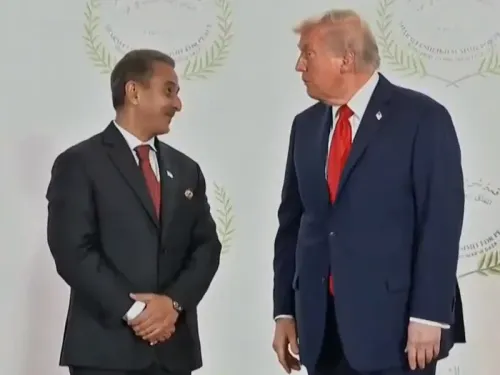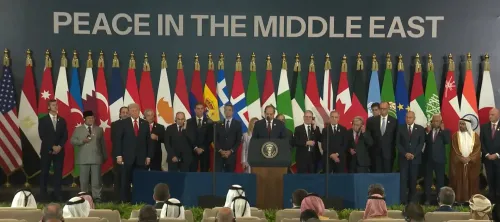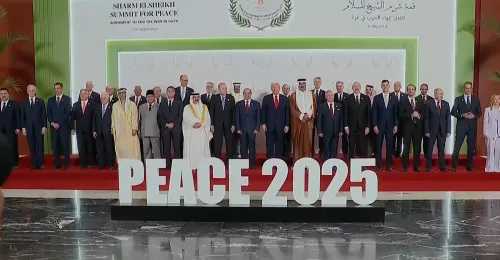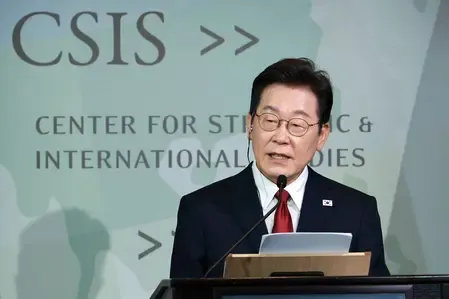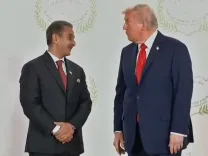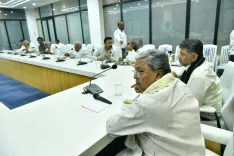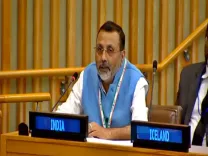Why Should the World Continue Discussing the Uyghurs and Their Systematic Genocide?
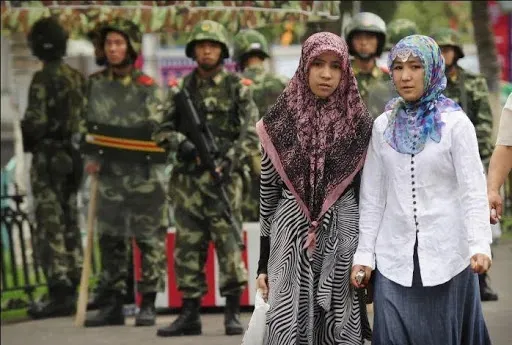
Synopsis
Key Takeaways
- Ongoing genocide: The Uyghur population in Xinjiang faces systematic persecution and cultural erasure.
- Forced labor: Many Uyghurs are subjected to forced labor under state programs.
- Demographic changes: Han migration has drastically altered the demographics of Xinjiang.
- Human rights violations: The Chinese government continues to deny the atrocities committed against the Uyghurs.
- Global awareness: Continued advocacy is essential for justice and accountability.
Washington: The East Turkistan National Movement (ETNM) plans to organize a demonstration outside the White House in the United States to commemorate 76 years since the Chinese Communist Party’s invasion of East Turkistan in 1949. This event, set for Sunday, aims to honor a 'National Day of Mourning for East Turkistan' and to raise awareness about the ongoing genocide of the Uyghur population in the Xinjiang Autonomous Region, which the Uyghur diaspora refers to as 'East Turkistan' and is believed to be occupied by the People's Republic of China (PRC).
The Uyghurs are an ethnic minority group in China, primarily Turkic-speaking Muslims and officially recognized as one of the 55 ethnic minority groups. They predominantly reside in Xinjiang, a region incorporated into the PRC in 1949 during the final stages of China's civil war, which the Chinese Communist Party describes as the 'peaceful liberation of Xinjiang.' In 1955, the Xinjiang Uyghur Autonomous Region (XUAR) was established under Mao's leadership as a part of the PRC's political integration strategy for regions dominated by ethnic minorities. However, diverging from their commitment to autonomy, the PRC has implemented an assimilation policy to politically and militarily integrate XUAR, recognizing its strategic importance as a gateway to Russia and Central Asia.
This policy has led to an influx of the Han population into Xinjiang, resulting in significant demographic shifts. In 1949, Uyghurs constituted over 90 percent of Xinjiang's population, but by 2020, they represented only about 44 percent according to the latest census. The migration of Han people has also economically marginalized the Uyghurs. Furthermore, the surveillance and suppression of Uyghur cultural and religious practices intensified significantly after the events of September 11, 2001, exacerbating Uyghurs' grievances against the Chinese government's mistreatment. Uyghur resistance, exemplified by incidents like the Urumqi riot of 2009 and the Yarkand massacre of 2014, was characterized by the Chinese government as 'terrorism', leading to a harsh crackdown by authorities.
China's genocidal actions against the Uyghurs gained international attention in 2017 when the PRC announced its intent to eradicate 'all separatist activities and terrorism' in Xinjiang, unleashing terror on over one million Uyghurs. These individuals were detained and forced into prisons, referred to as 're-education camps,' where they faced persecution. The Chinese government justified these actions as a means to combat 'extremism,' claiming that detaining 'radicalized' Uyghurs would allow them to be de-radicalized and enable their contribution to China's economy.
In reality, the PRC has committed serious human rights violations. Reports indicate that Uyghurs in 're-education camps' are subjected to forced labor as part of a state-mandated 'poverty alleviation' program, which involves not only ideological indoctrination but also labor in inhumane conditions. According to a 2020 report from the Australia Strategic Policy Institute, over 80,000 Uyghurs have been transferred out of Xinjiang and assigned to work in factories that supply approximately 83 percent of popular global brands. Consequently, the global market, particularly sectors such as automobiles, textiles, food, and electronics, is believed to benefit from forced Uyghur labor—a modern form of state-sponsored slavery.
Uyghurs have also faced severe restrictions under state-sanctioned population control and family planning programs. Coercive tactics like forced sterilization, abortion, and IUD insertions have violated the bodily autonomy of Uyghur women. Census data reveals a staggering 84 percent decline in the Uyghur population between 2015 and 2018, coupled with a 46.7 percent drop in birth rates, indicating a troubling demographic inversion in Xinjiang and a significant violation of minority rights.
Perhaps the most distressing aspect is the systematic cultural erasure of Uyghur identity under China's Sinicization policy. With Mandarin imposed as the sole language of instruction in schools, Uyghur children risk losing their cultural identity. Additionally, children of detained Uyghurs are forcibly separated from their families, resulting in indoctrination that fosters obedience to the Chinese government and the Communist Party, leading to profound psychological trauma.
The Sinicization policy has also extended to religious practices, with the government maintaining strict control over them. A regulation enacted in 2015 banned Islamic veils and robes, while further laws implemented in 2017 imposed additional restrictions on religious attire, dietary practices, and customs deemed 'expressions of extremism.' A 2019 law aimed at Sinicizing Islam accelerated state control, demanding that Islamic practices align with socialism, and requiring religious venues to demonstrate loyalty to the Chinese Communist Party. Under this policy, numerous mosques have been reported demolished, with Islamic motifs and Arabic inscriptions removed to make them appear more Chinese.
The genocide of the Uyghurs is systematic, ongoing, and multifaceted. State repression encompasses demographic changes through settler colonialism, violations of reproductive rights in Xinjiang, cultural erasure, and restrictions on religious practices via the Sinicization policy that criminalizes Uyghur identity and forces labor. Rather than accepting responsibility, the PRC continues to deny these atrocities, labeling Uyghurs as terrorists and justifying its genocidal actions as efforts to combat extremism, radicalism, and terrorism. The Chinese government has now proposed a new 'Ethnic Unity' law to further assimilate minority populations under the guise of 'common prosperity and development for all ethnic groups...along the path of rule of law.' This proposed law, once enacted, is expected to intensify government repression and tighten ideological control over minorities, as warned by Human Rights Watch. Therefore, as we mark 76 years since China’s annexation of Xinjiang and the state-sanctioned genocide against Uyghurs, the global community must persist in advocating for the Uyghurs.

